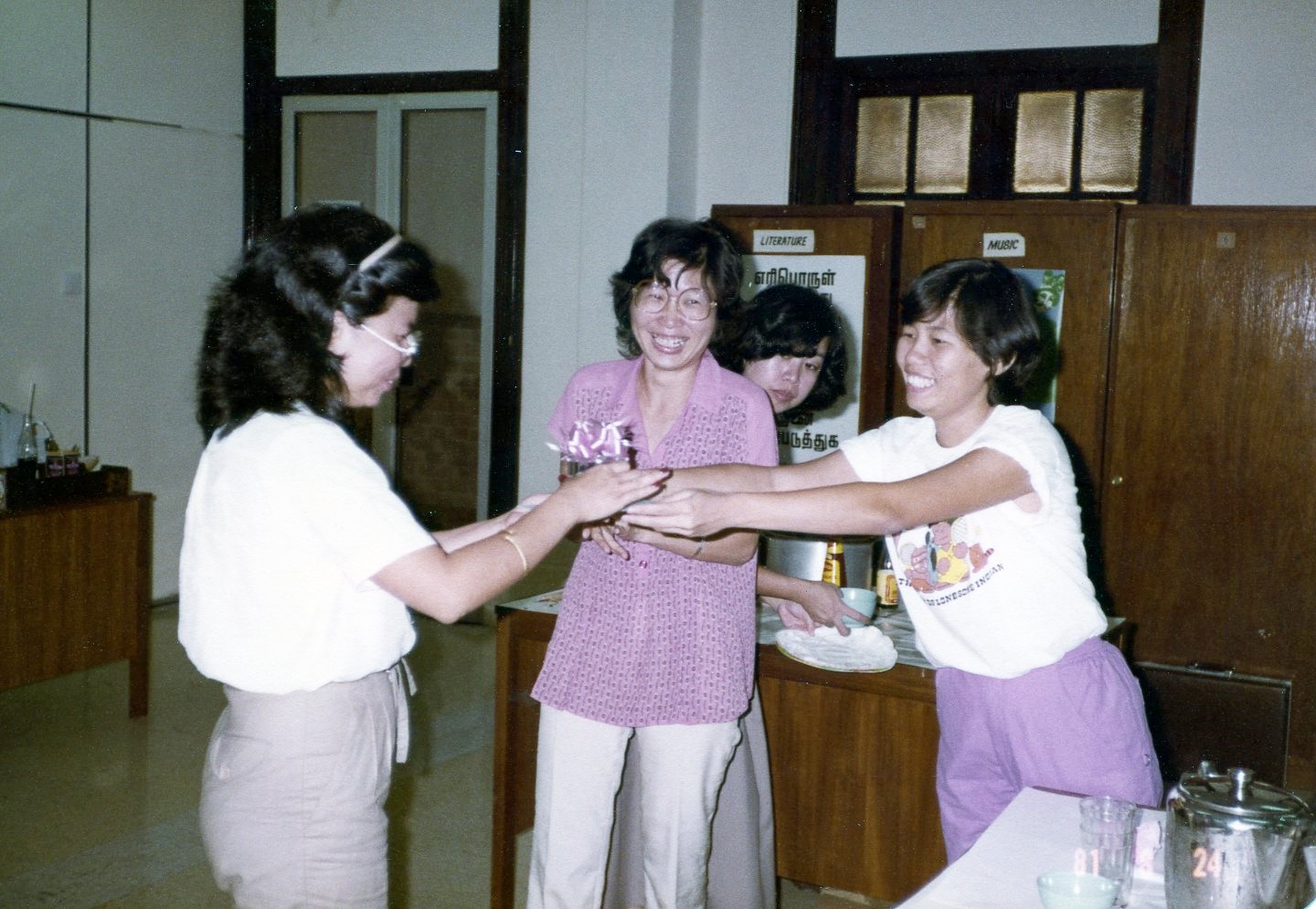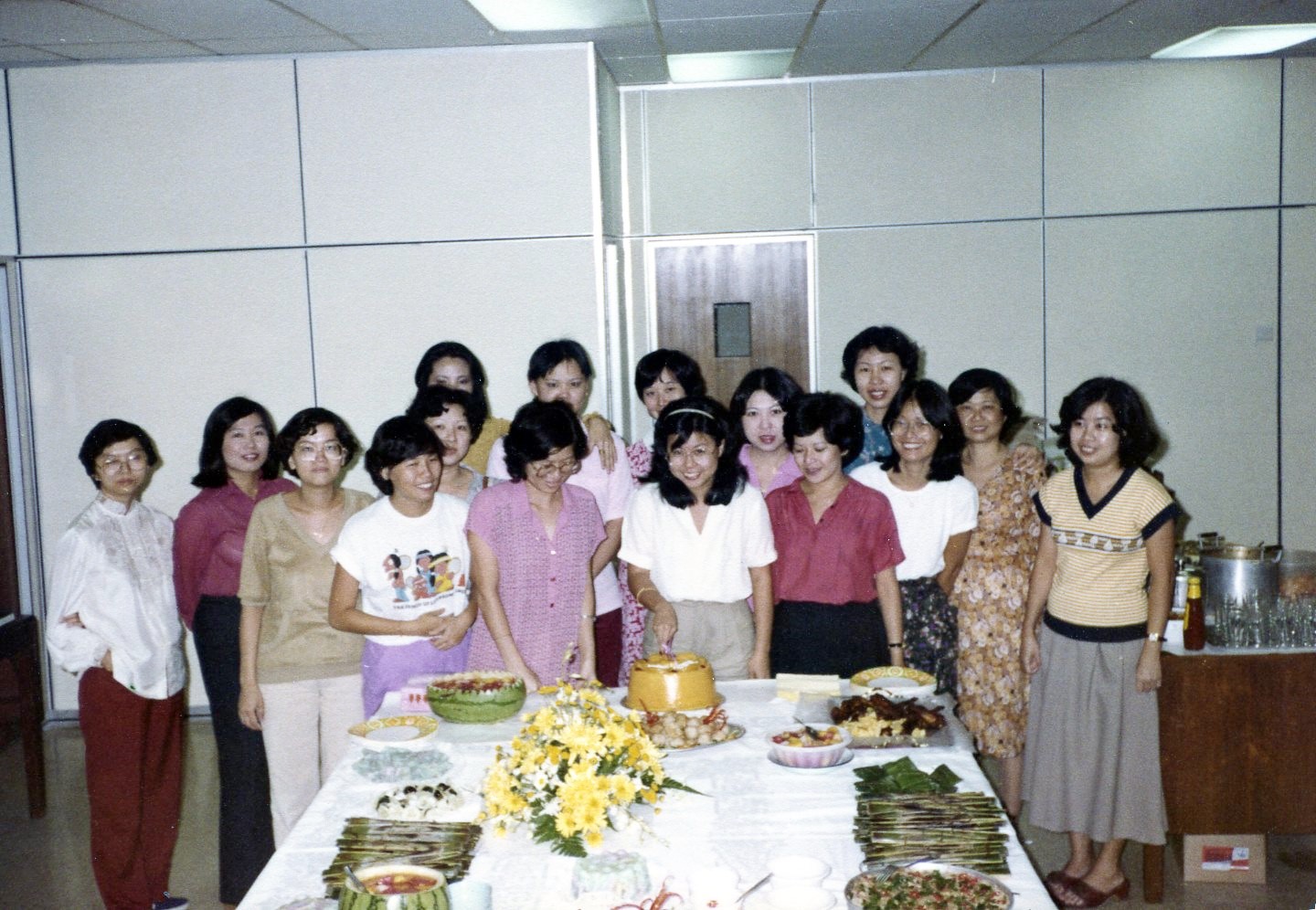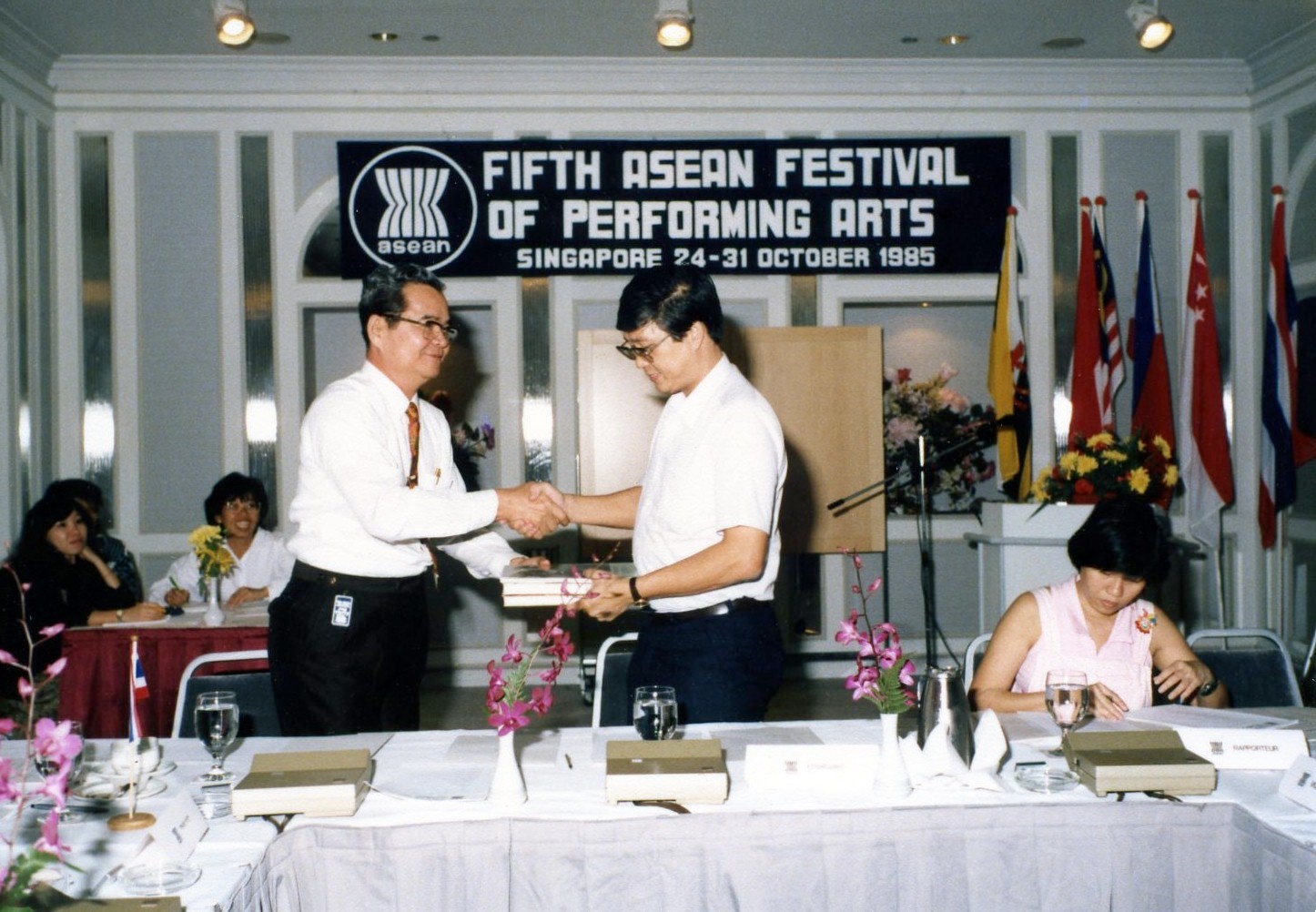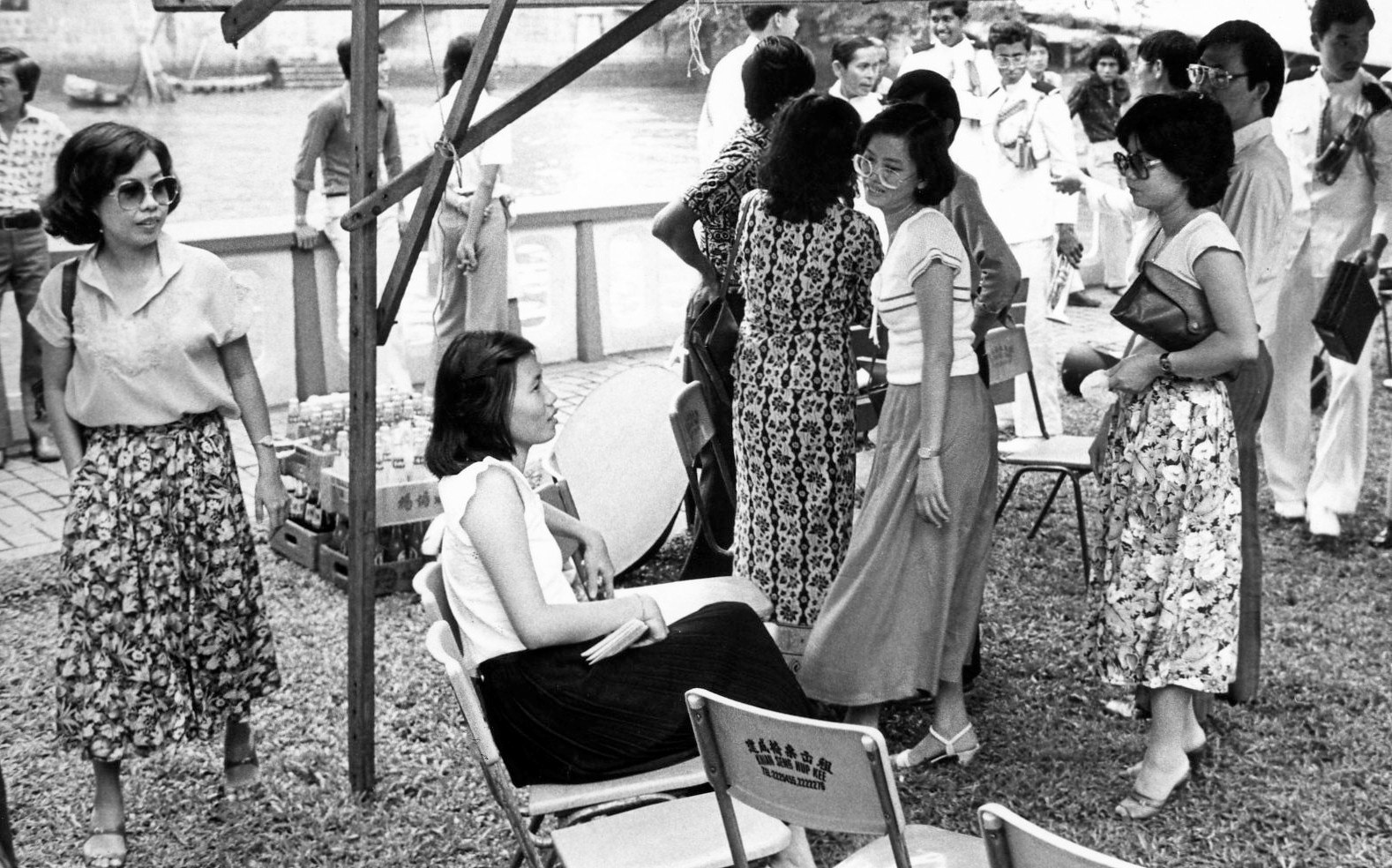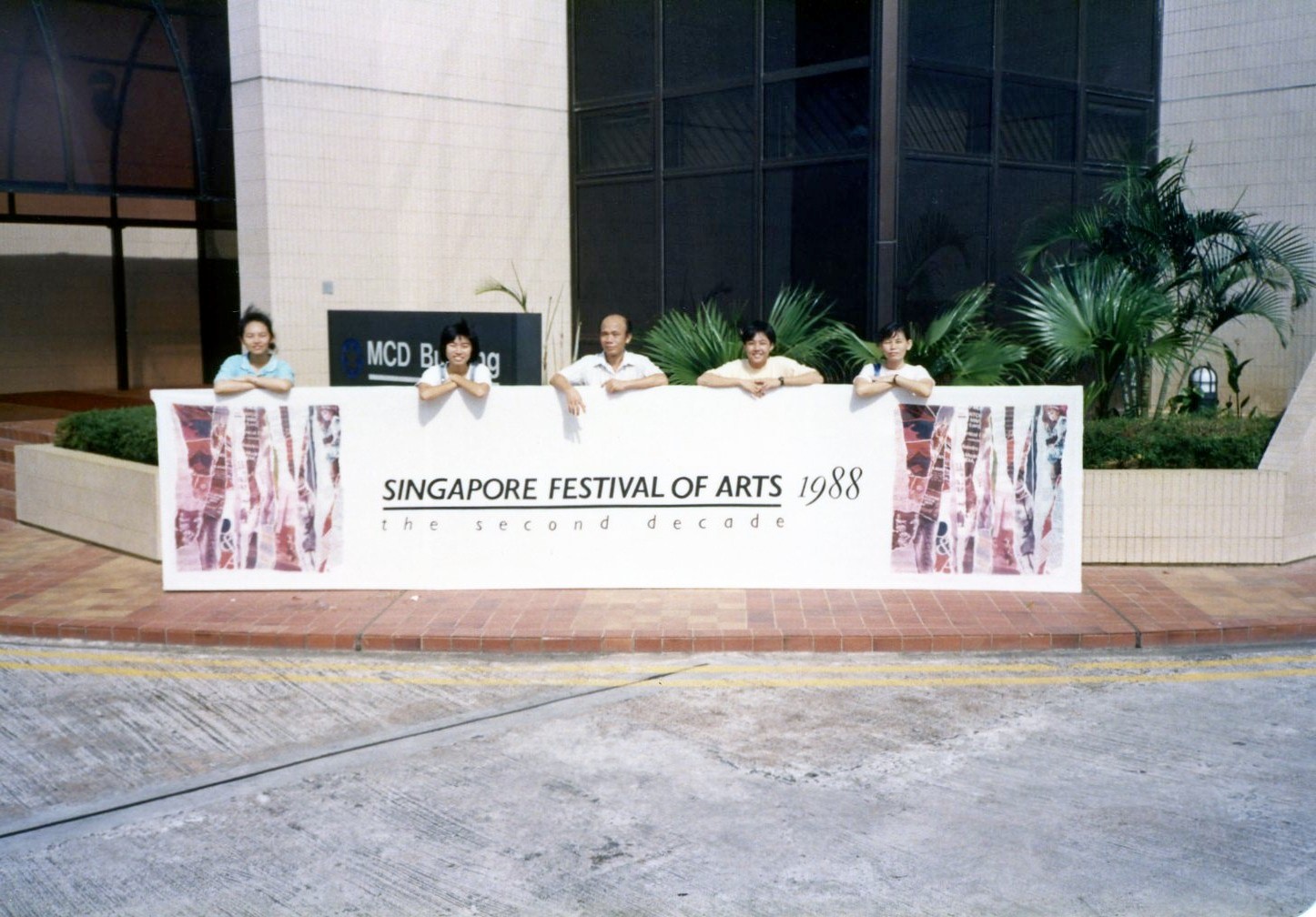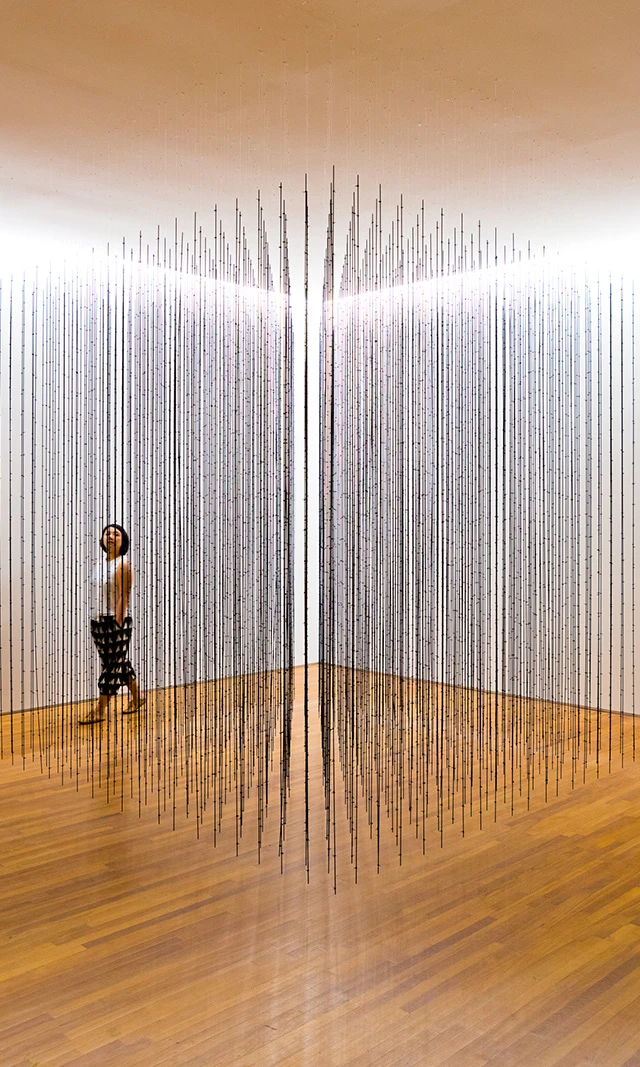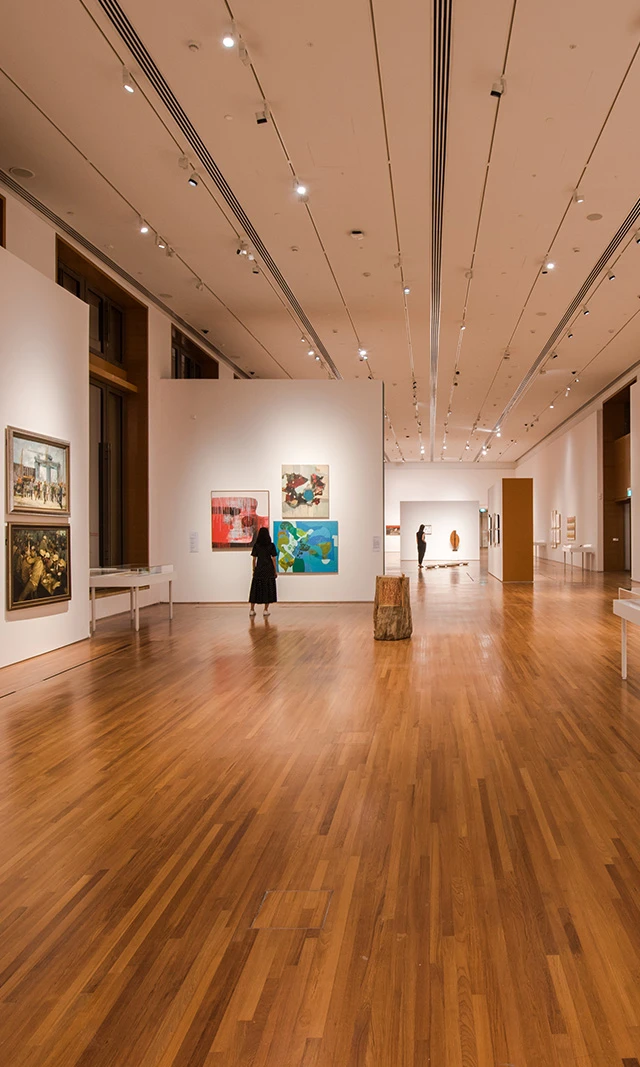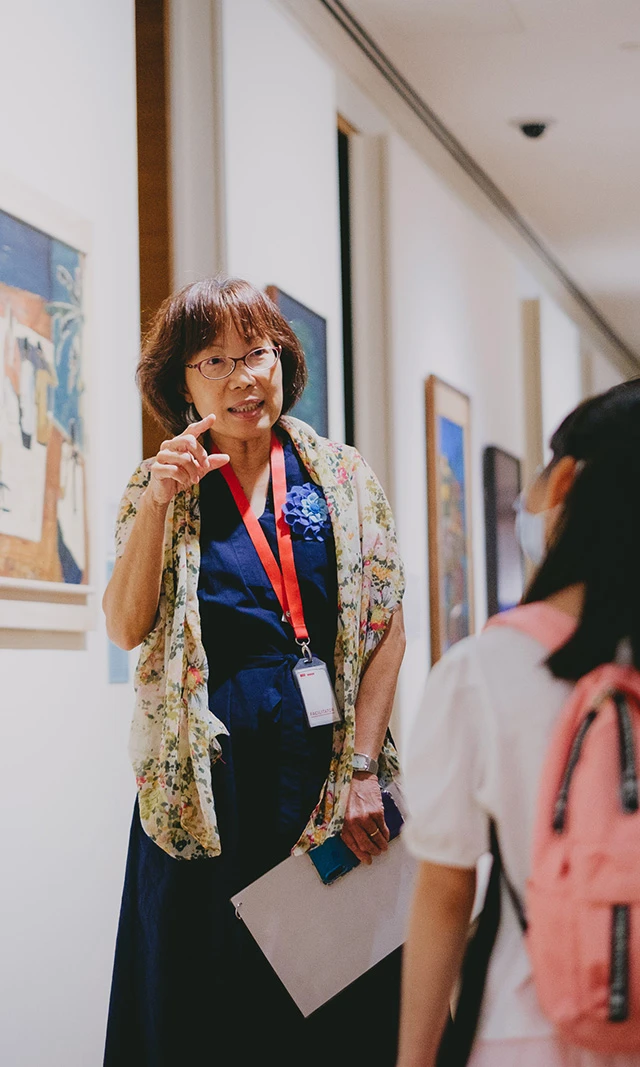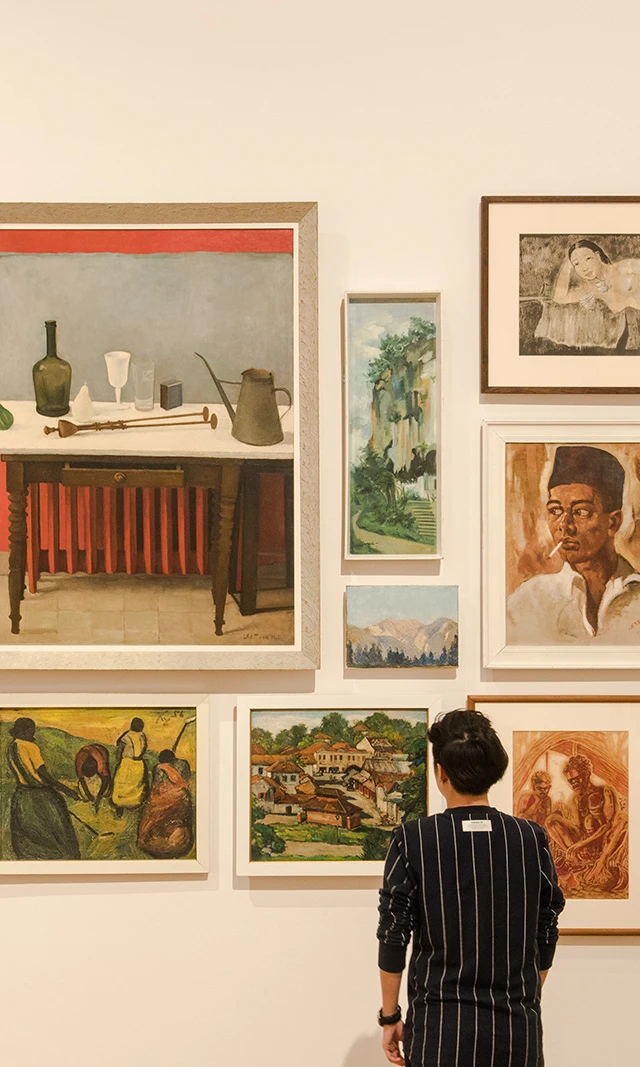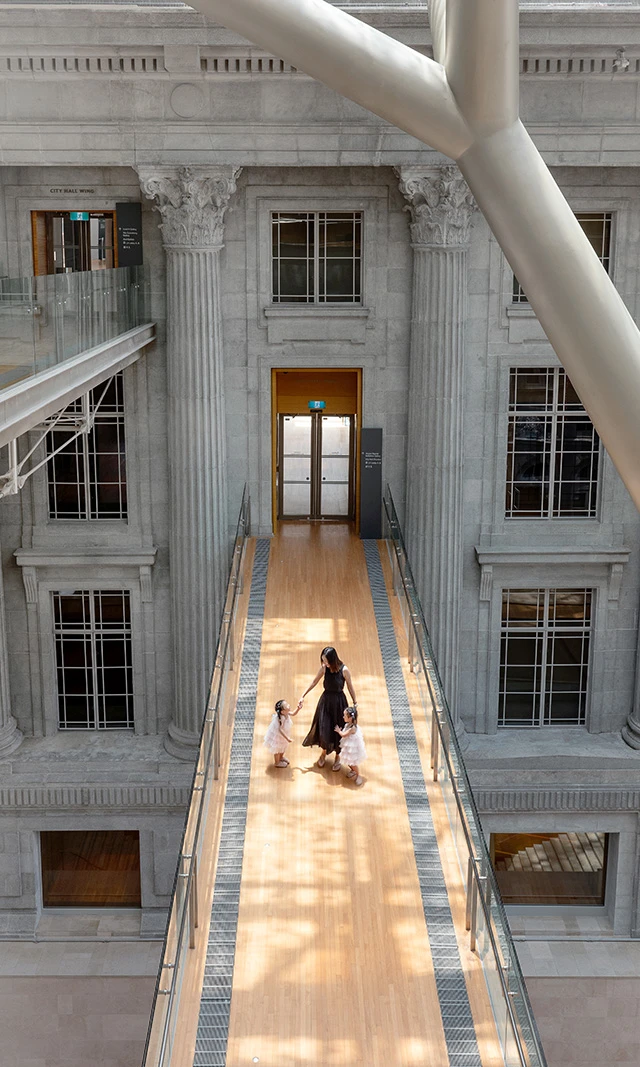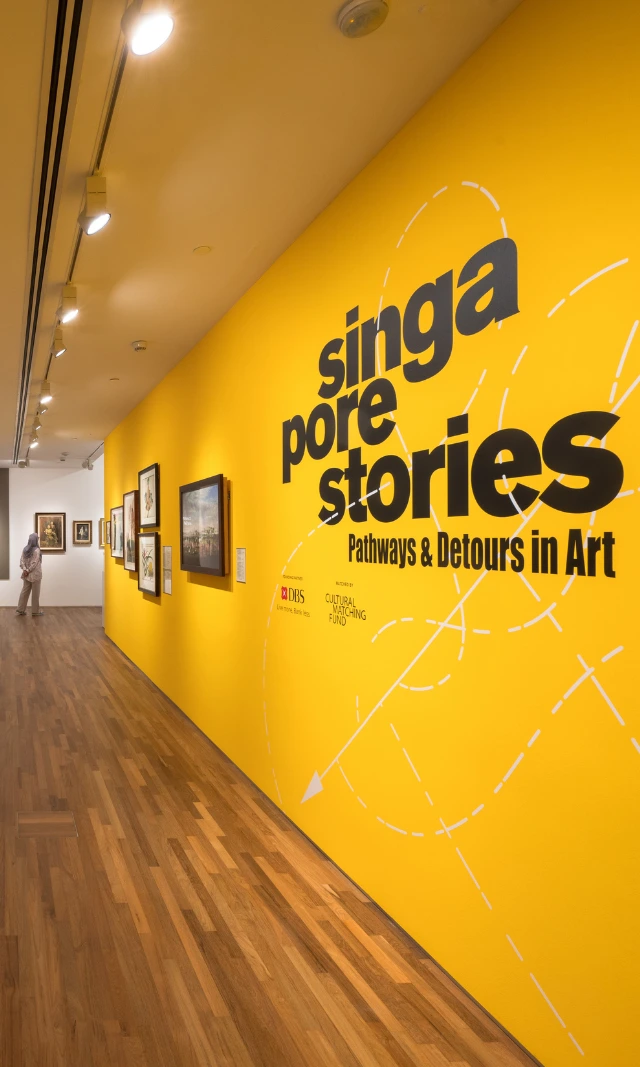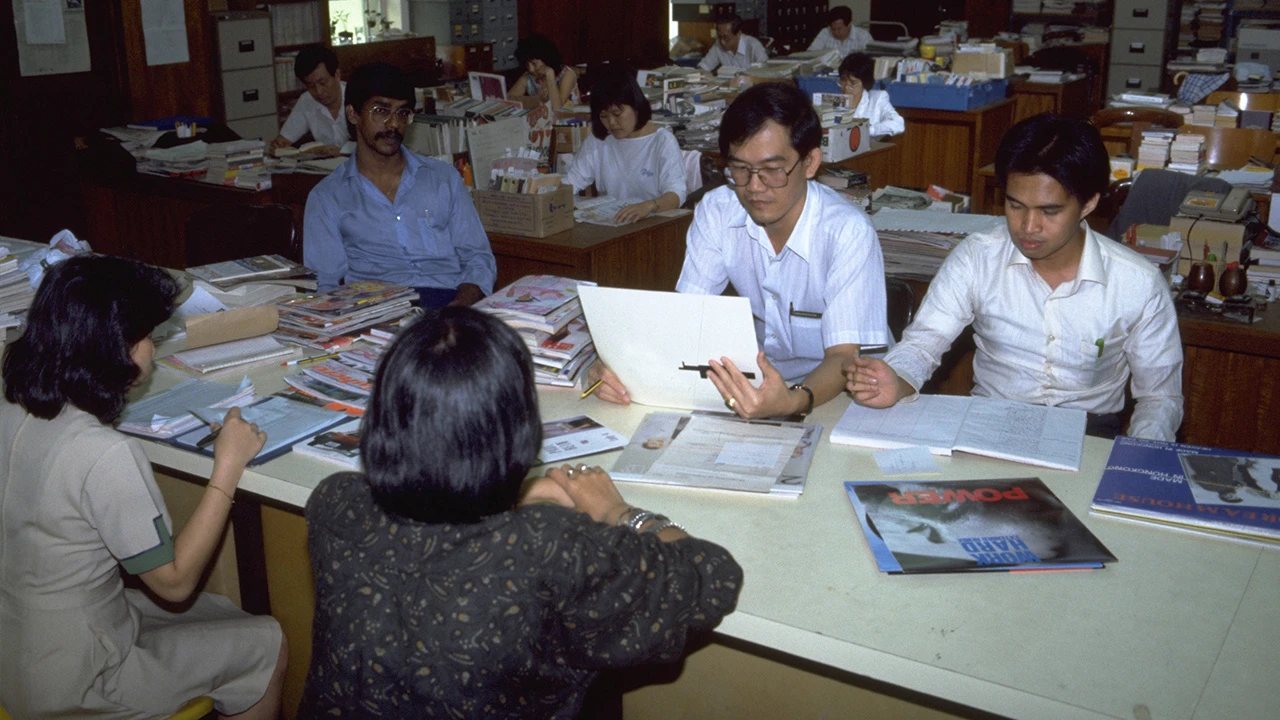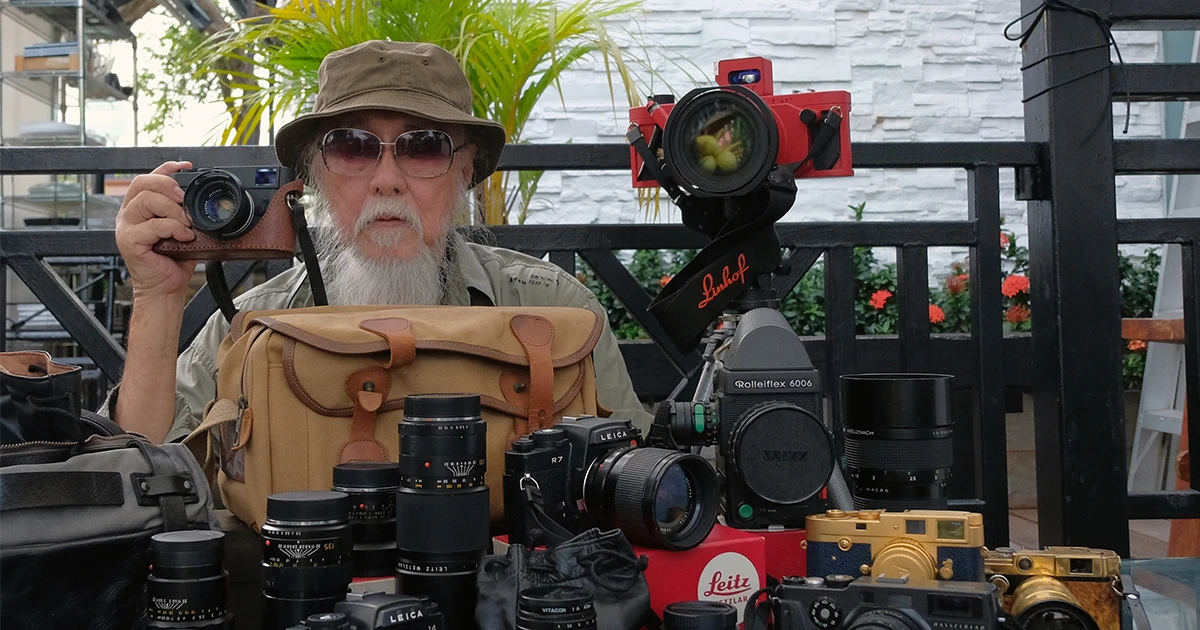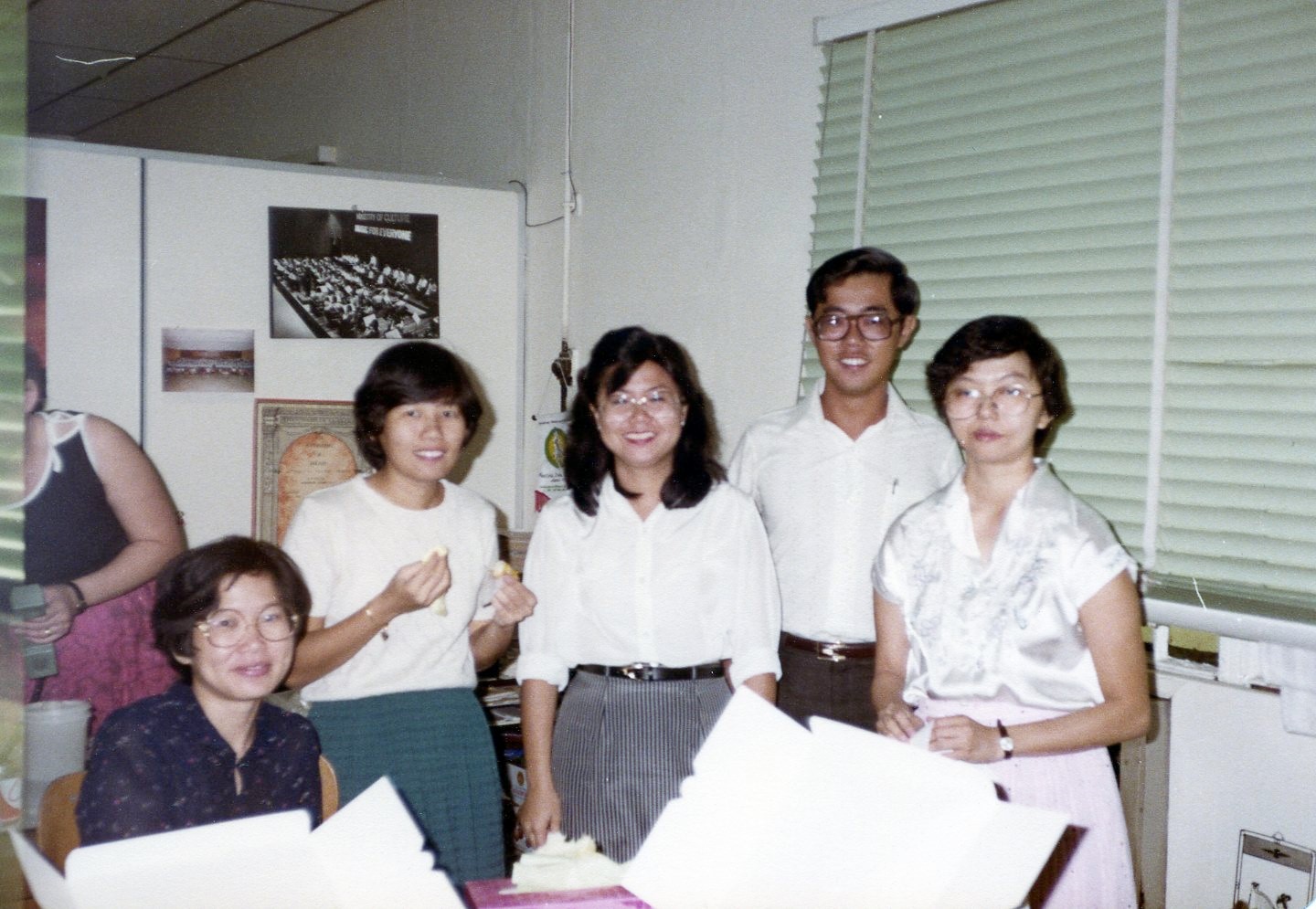
1981
“When I first started work at City Hall, I was not aware of how stately the building was. It was just an old office with fans – there was no air-conditioning at first - and rats! We would scream and jump onto our tables when we saw rats. It got to a point that we became very paranoid and would be on the lookout at the slightest movement. The rat problem was thankfully resolved later.”
Ai Liang’s post as Assistant Organiser at the Ministry of Culture was the start of a 40-year career in the civil service. One of her responsibilities was managing the National Dance Company (NDC), a part-time multi-cultural dance company supported by the Ministry. NDC would perform at state functions, ASEAN events, and VIP visits. The dancers used to rehearse at the Surrender Chamber in the evenings.
“I had to mark their attendance at the chamber, and I would run, not walk, up or down the central staircase between my office and the chamber. Because the staircase was always dark and just a little spooky,” Ai Liang explains.
The days before computers
Another thing that stands out for Ai Liang is how manual work processes were back then.
“Everything was in hard copy so we had to do a lot of walking, either to the typing pool, or to the Registry to get files.”
Important papers had to be stored in boxes and sealed before being transported.
“The person in charge of the sealed boxes was nicknamed the ‘Box Sec’,” she laughs. “I remember the one in charge of the Registry was Mala. She had an amazing memory! All the file numbers were centrally stored in her brain. She probably didn’t even need a computer which of course only arrived later on.”
The show must go on
Although her main focus was on dance and drama activities, Ai Liang and her colleagues supported other cultural events under the Ministry’s purview, such as the Singapore Arts Festival. Inevitably, there were hiccups.
“Because processes were manual back then, sometimes there were mistakes. Say we reserved the front row for VIPs but the ticketing office sold those tickets, we would then have to cover up the front row and move the ‘A’ row down,” says Ai Liang.
Shortly after the Singapore Arts Festival was launched, it became a highly anticipated event as the Ministry started bringing in big international acts. Demand for tickets was high.
“We put up a board in our office to help members of the public who wanted to swop tickets. We were that keen to help.”
Ai Liang is glad to have been a part of the Ministry. “Our Ministry was not big and we all worked closely together. We felt like a family. When one had an event, everyone would help with ticketing, backstage or ushering. It would just happen naturally. There was no need for a duty roster – such terms were not part of our vocabulary at that time. We were even close to the Victoria Theatre staff whom we liaised with frequently for our events,” she explains.
“I did not feel like I was part of an official government agency. In fact, from my Ministry colleagues, to NDC and Victoria Theatre staff, we all felt like part of a community trying to move things forward. That’s something I look back on with great fondness.”
